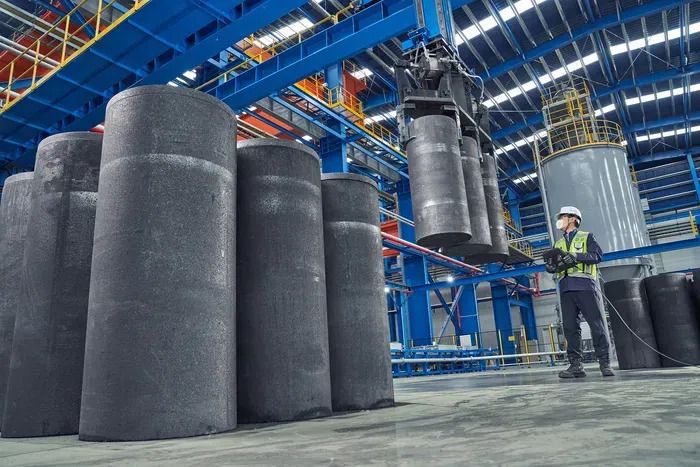 The U.S. battery industry is bracing for a significant cost hike as Washington moves to impose a 93.5 percent anti-dumping tariff on Chinese graphite. This decision could have far-reaching implications, given that many global supply chains remain heavily dependent on China.
The U.S. battery industry is bracing for a significant cost hike as Washington moves to impose a 93.5 percent anti-dumping tariff on Chinese graphite. This decision could have far-reaching implications, given that many global supply chains remain heavily dependent on China.
A Bloomberg report released Thursday revealed that the U.S. Department of Commerce has issued a preliminary ruling to apply anti-dumping duties on imports of graphite, a crucial anode material used in electric vehicle batteries.
If implemented, Chinese graphite imports with 90 percent or higher carbon purity – whether natural, synthetic, or blended – could face effective tariff rates of up to 160 percent, taking into account existing countervailing duties. The final determination is expected by December 5.
Chinese firms currently dominate the global graphite market, supplying over 90 percent of the world’s needs. Graphite constitutes about 95 percent of the anode in EV batteries. The proposed U.S. tariffs could potentially double the material costs for domestic manufacturers.
Battery anodes represent approximately 7 percent of an EV battery’s total cost. Industry analysts suggest that these new tariffs could add $1,000 to the price of U.S.-made batteries, potentially driving up EV prices for consumers.
This development adds another layer of uncertainty for Korean battery manufacturers expanding their U.S. operations to qualify for incentives, such as EV tax credits under the Inflation Reduction Act and the Advanced Manufacturing Production Credit.
LG Energy Solution, Korea’s leading battery manufacturer, currently operates three plants in the U.S., including two joint ventures, and is constructing four more. Samsung SDI manages two U.S.-based plants, while SK On is building two joint venture factories in addition to its existing U.S. facility.
The industry is already grappling with the possibility of an early termination of IRA tax incentives this September, further complicating their business outlook.
In response to these developments, shares of Korean battery material producers surged in early Friday trading. Investors are betting on increased demand for non-Chinese anode supply chains.
Posco Future M, Korea’s leading battery materials supplier, saw its stock price skyrocket by as much as 24 percent on the benchmark Kospi. By 12:15 p.m., it had settled at 156,300 KRW ($117.23), marking a 19 percent increase from the previous day’s close.
Last year, the company ranked 11th in the global anode market with a 1.3 percent share, trailing behind 10 Chinese firms. Reports indicate that Posco Future M had been operating its anode production facilities at only about 30 percent capacity by year-end, as low-cost Chinese products continued to dominate the market.










Most Commented